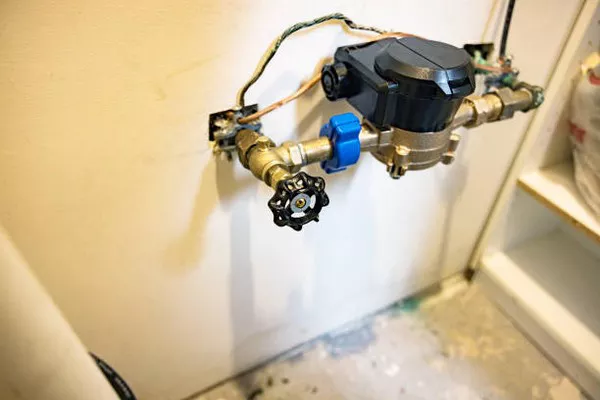Instrumentation systems play a critical role in various industries, enabling precise measurement and control of processes, ensuring safety, and improving efficiency. These systems are a fundamental component of fields as diverse as manufacturing, healthcare, aerospace, and energy. In this article, we will delve into the concept of instrumentation systems, exploring their purpose, components, applications, and significance in modern technology and industry.
What is an Instrumentation System?
An instrumentation system is a collection of devices, instruments, and technologies designed to monitor, measure, and control various physical parameters or variables in a specific environment or process. These systems provide valuable data and feedback to help operators, engineers, and researchers make informed decisions and optimize performance. Key aspects of an instrumentation system include:
Sensors and Transducers: Sensors are devices that convert physical parameters such as temperature, pressure, or light into electrical signals. Transducers, a subcategory of sensors, also perform this function but can alter the physical parameter, such as converting temperature into a voltage signal. The choice of sensor or transducer depends on the specific application.
Signal Conditioning: The raw electrical signals from sensors/transducers often require amplification, filtering, or other adjustments to make them suitable for further processing. Signal conditioning circuits perform these tasks, ensuring accuracy and reliability.
Data Acquisition: Data acquisition systems collect and digitize the conditioned signals, making them ready for computer-based analysis and visualization. These systems include analog-to-digital converters (ADCs) and interface with the control or monitoring system.
Control and Monitoring System: This component processes, stores, and displays the data collected by the data acquisition system. It can also provide control signals to adjust the parameters being monitored, allowing for real-time adjustments to maintain desired conditions.
Components of an Instrumentation System
To understand the core elements of an instrumentation system better, let’s break down the key components:
Sensors and Transducers: Sensors and transducers are the front-line components responsible for detecting and converting physical variables into electrical signals. These can include temperature sensors, pressure transducers, strain gauges, photodetectors, and many more, depending on the application.
Signal Conditioning Circuits: Raw signals generated by sensors/transducers may require amplification, filtering, or linearization to improve their accuracy and reliability. Signal conditioning circuits include operational amplifiers, filters, and signal converters.
Data Acquisition System: This system digitizes and stores the conditioned signals for further processing. It includes ADCs, multiplexers, and signal conditioning modules, as well as an interface to a computer or microcontroller for data transfer and analysis.
Display and Control Interface: The control and monitoring system displays data in real-time and provides the means to interact with the process or environment being monitored. This can include digital screens, alarms, graphical user interfaces (GUIs), and control interfaces like knobs or switches.
Applications of Instrumentation Systems
Instrumentation systems find applications in a vast array of industries and fields. Here are some key areas where these systems are instrumental:
Manufacturing and Quality Control: In manufacturing, instrumentation systems are used to monitor parameters like temperature, pressure, and flow rates, ensuring products meet specific quality standards. They help maintain consistent production processes and detect deviations in real-time.
Healthcare: Medical instrumentation systems are critical for patient monitoring, diagnostics, and treatment. Devices such as blood pressure monitors, ECG machines, and MRI scanners rely on these systems to provide accurate data for healthcare professionals.
Aerospace and Defense: In the aerospace industry, instrumentation systems are crucial for aircraft navigation, engine monitoring, and avionics. These systems help ensure the safety and reliability of aircraft, satellites, and military equipment.
Energy Sector: Power plants, both conventional and renewable, rely on instrumentation systems to monitor and control parameters like temperature, pressure, and voltage. This ensures the efficient and safe operation of these facilities.
Environmental Monitoring: Environmental scientists use instrumentation systems to measure various parameters, including air and water quality, weather conditions, and pollutant levels. This data is vital for studying climate change and managing environmental resources.
Research and Development: In scientific research,instrumentation systems are indispensable for data collection and analysis. Researchers use them in fields like physics, chemistry, biology, and material science to gather precise measurements and conduct experiments.
Transportation: Instrumentation systems are used in vehicles and traffic management to monitor and control traffic flow, ensure safety, and optimize transportation systems.
The Significance of Instrumentation Systems
Instrumentation systems play a crucial role in today’s world, and their significance can be summarized in several key points:
Precision and Accuracy: Instrumentation systems offer unparalleled precision and accuracy in measuring and controlling physical parameters. This is essential for industries where even minor deviations can have significant consequences.
Safety and Reliability: These systems help ensure the safety and reliability of processes, products, and equipment. In industries like aerospace, healthcare, and energy, reliable instrumentation is a cornerstone of safety protocols.
Efficiency and Optimization: By providing real-time data and control capabilities, instrumentation systems allow operators to optimize processes, leading to reduced resource wastage and increased productivity.
Data-Driven Decision Making: The data collected by instrumentation systems enables informed decision-making. In research, healthcare, and manufacturing, this data guides improvements and innovations.
Environmental Impact: Instrumentation systems contribute to environmental conservation by monitoring and controlling emissions, resource consumption, and waste production. This is especially important in the context of sustainable practices and regulations.
Conclusion
Instrumentation systems are the unsung heroes behind many of the technological advancements and industries we rely on today. These systems enable precise measurement, control, and monitoring of various physical parameters, making them indispensable in fields ranging from healthcare to manufacturing and beyond. The components and applications of instrumentation systems are vast and diverse, reflecting their adaptability and importance in modern society. Their role in ensuring safety, efficiency, and data-driven decision-making underscores their significance in our increasingly complex and interconnected world.

